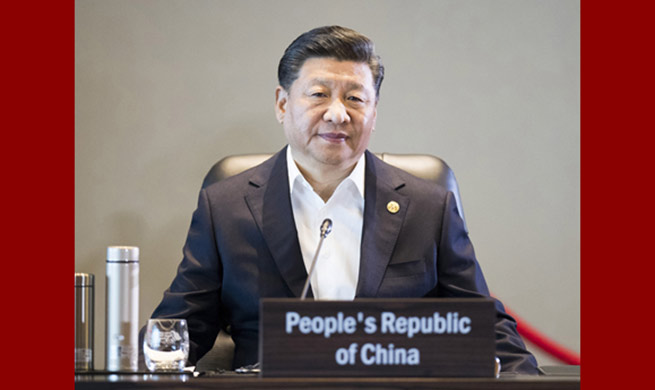ROME, Nov. 21 (Xinhua) -- Video-on-demand pioneer Netflix is facing a new hurdle in Italy, after a decree from the country's minister of culture aimed to slow the process for cinematic releases to make their way to online streaming services.
U.S.-based Netflix, founded in 1997, is the world's largest subscription-based video streaming platform, with services in 190 countries and 11.7 billion U.S. dollars (10.3 billion euros) in revenue last year.
Starting in 2011, more than half of Netflix's subscribers have been outside the U.S., and the non-U.S. market has grown much faster than the company's domestic subscriber base. As of the third quarter of this year, around 80 million of the company's 140 million subscribers are located beyond the U.S.'s borders.
Under the new rules, Netflix's nearly 1 million Italian subscribers will have to wait longer than in the past for cinema productions to make their way to computer screens. The law prohibits Netflix or other streaming services from offering major films for at least 15 weeks from when the film first screened in Italy's nearly 4,000 cinemas.
"The goal of the new decree is to help protect the country's cinemas while making sure that every kind of film will be able to find its audience," Lionello Cerri, a film producer, cinema owner, and a former president of ANEC, Italy's National Association of Cinema Operators, said in an interview.
The decree from Minister of Culture Alberto Bonisoli offers exceptions to the waiting period for smaller motion pictures.
For example, Italian films that screen for three or fewer days as part of special events can be shown on streaming services ten days after their premiere. Those that open on 80 or fewer cinemas -- major productions in Italy usually open in hundreds of cinemas simultaneously -- and that screen to fewer than 50,000 paid movie goers in their first three weeks can screen on streaming services after 60 days.
The limits for smaller films are only applicable for Italy-made productions, Cerri said, while the 15-week (105 day) waiting period is applicable to all films, Italian or foreign.
In a statement, Bonisoli said the rules will push some films to skip showing in cinemas all together, while allowing cinemas to focus on high-revenue productions.
"Cinemas can only operate if they show popular films that generate income," Bonisoli said.
Since 1990, cinema attendance in Italy has remained relatively stable, with around 100 million cinema tickets sold each year. But that comes despite increases in population and per capita wealth since then, and higher costs for producing films.
The new decree -- dubbed the "anti-Netflix" law by the Italian media -- was sparked by the high-profile world premieres of several films produced by Netflix or online retailer Amazon at this year's Venice Film Festival. Among them was "Roma," a film by Mexican director Alfonso Cuaron that went on to win the festival's top prize.
"Roma" did not have a film cinema distribution deal before the Aug. 29-Sept 8 Venice festival, but on the back of its victory producers signed a deal for the film to open in cinemas Nov. 21, and be made available on the Netflix platform 23 days later, on Dec. 14. A concern among cinema operators is that that short span will dissuade interested movie-goers from watching the film in a cinema and instead wait for it to become available online.
If the new decree had been in force, "Roma" would not be eligible to appear on Netflix until March 6, 2019 -- 105 days after its official cinema premiere.
Analysts differed on how effective the new measure will be in protecting the country's cinemas or whether it will help curb interest in for streaming services. But Raffaele Barberio, founder and director of Key4Biz, a portal focusing on the digital economy, said there is a strong case to be made for helping to protect the country's cinema operators.
"It is not just a question of protecting cinemas and the people they employ," Barberio told Xinhua. "Cinemas are part of the community around them. They help support nearby restaurants and bars. The cinema is a cultural touchstone."
Netflix-Italia declined to comment on the new developments.













